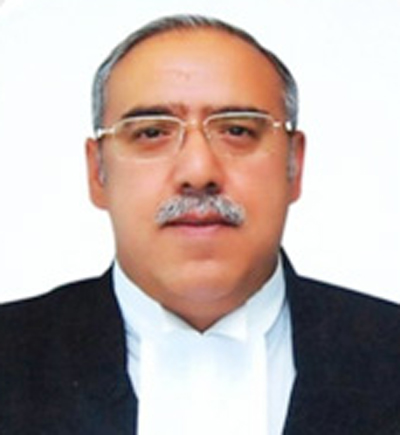Dissent is not anti-national, it is the “biggest” and “most important right” guaranteed by the Constitution, a Supreme Court judge said on Monday.
“Just because you hold a contrarian view, it does not mean you are anti-national or have disrespect for the country,” Justice Deepak Gupta said.
Justice Gupta said: “You may disagree with the government, but you may not go against the country. There is a difference between the country and the government.”
To question, to challenge, to verify, to ask for accountability from the government is the right of every citizen, he stressed.
“Citizens have a right to get together and protest when they feel that the actions taken by the government are not proper. Their cause may not always be right. At the same time, the government may also not be right,” Justice Gupta said.
“The government has no right to stifle or quell protest as long as the protests are peaceful,” he said.
The judge, who retires on May 6, was speaking at a conference on Democracy and Dissent organised by the Supreme Court Bar Association.
His comments come in the backdrop of a brutal crackdown on peaceful protests against the new citizenship matrix in several parts of the country, and a spurt in sedition cases being slapped on citizens questioning the government.
In a democracy based on the first-past-the-post principle, the government most of the time does not represent the majority of the population, Justice Gupta said. So, those in power cannot claim to represent the will of all the people.
“Even assuming they represent more than 50 per cent of the electorate, can it be said that the remaining 49 per cent of the population has no voice…? Can it be urged that the remaining 49 per cent cannot speak for the next five years…? Should these 49 per cent be totally ignored if they oppose what is said by the government? In my view, the answer has to be a big ‘No’,” Justice Gupta said.
He cited several Supreme Court judgments upholding the citizens’ right to free speech and expression and said dissent was the essence of Mahatma Gandhi’s civil disobedience movement. Justice Gupta also cited dissenting judgments as a healthy sign of a fearless judiciary, in particular that of Justice H.R. Khanna during the Emergency.
Justice Khanna had held that fundamental rights of citizens cannot be violated even during grave situations like Emergency, a judgment that eventually cost him the position of Chief Justice of India.
“Today in the country, dissent is seen as anti-national…. I see bar associations passing resolutions saying they will not appear in etc matter as anti-national. This is not done. You cannot deny legal aid,” the judge said.
A free country is one that guarantees freedom of speech and governance by rule of law, Justice Gupta said.
“New thought will only come in if you challenge old thought,” citing the examples of Buddha, Mahavira, Jesus Christ, Prophet Mohammad, Guru Nanak, Kabir, Raja Rammohun Roy, Swami Dayanand Saraswati, Martin Luther King, Karl Marx and Gandhi.
“Dissent must be encouraged. It is only through discussion that we can strive to run the country better,” he said.
“Criticism of the executive, the judiciary, the bureaucracy or the armed forces cannot be termed ‘anti-national’,” he said, adding that any attempt to stifle such criticism would turn the country into a police state.
Justice Gupta received a standing ovation from the packed auditorium, where senior lawyers were in the audience, including Bar association president Dushyant Dave and vice-president Kailash Vasudev and attorney-general K.K. Venugopal.
R Balaji is a practising advocate in the Supreme Court











